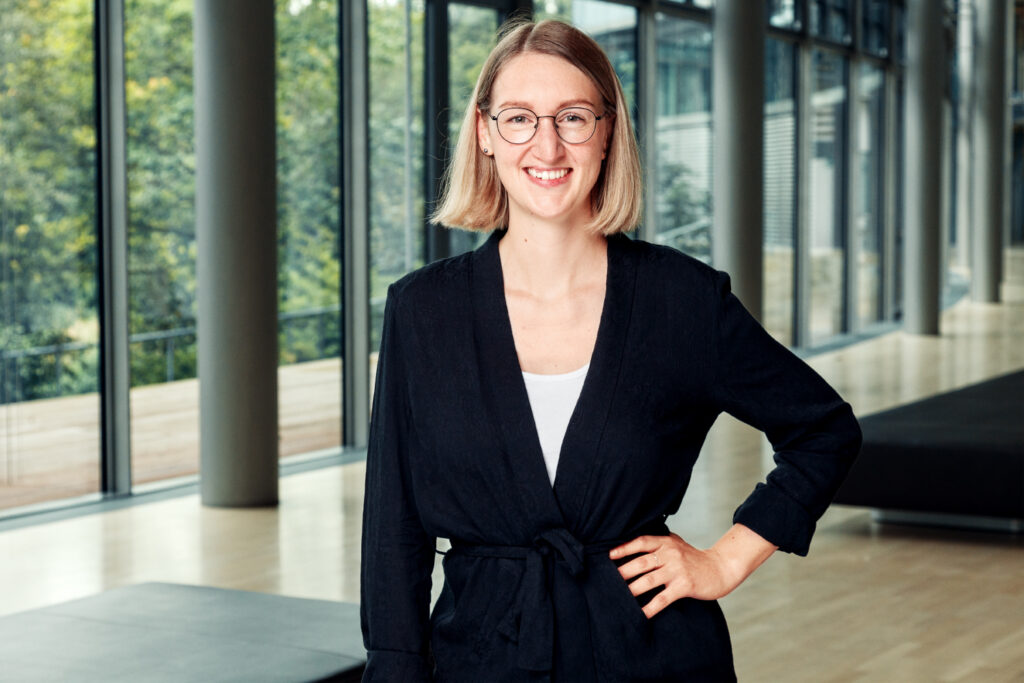In the meet the team series, we introduce a member of the research group every week to give an impression beyond the scientific work. For this purpose, our student assistant Philippe Sander asked us a few questions.
Today in the interview: Julia Romberg. As a computer scientist, she develops methods for the (partially) automated classification of contributions in participation processes. More info on Julia’s research can be found here.

What inspired you to pursue a career in your research field, and how did you get started in your field?
I studied computer science because I enjoyed math at school and wanted to try something technical. In my master’s degree I started working with language data. Since I always found human language very interesting, I stuck with it.
Can you describe your current research project and what you hope to achieve with it? What do you personally find the most interesting about it?
The aim of my research project is to support the evaluation of textual contributions from citizen participation processes. One challenge is that often large amounts of data are generated, e.g., as emails or via online platforms. These are supposed to be evaluated within a certain time frame, but at the same time their evaluation must fulfill certain democratic norms (e.g., every voice must be heard). These requirements are difficult to comply by a pure manual evaluation, and that’s where computational approaches come in.
How do you go about your research? What methods, theories or frameworks do you use?
I use natural language processing tools to pre-structure public contributions thematically and to identify citizens’ arguments in order to highlight them fora subsequent manual analysis.
What are some of the biggest challenges you face in your work and how do you overcome them?
We are a transdisciplinary and interdisciplinary project. Communication across different disciplines is always a bit difficult, e.g., because of different terminologies and the strong focus on very specific research questions. That’s why we took our time at the beginning of the project to build a common ground to better understand each other and raising awareness for this particular challenge. The same applies for our communication with the practice, so that people without closer connection to the research area can understand our research. My recommendation for good science communication is “learning by doing”, e.g., by regularly preparing presentations for a non-specialist audience.
How do you stay on top of the latest trends and developments in your field?
Of course, it is an advantage that AI and natural language processing have aroused the broad interest of the media by now (keyword ChatGPT). Additionally, reading the current literature is a must. At the same time, the fast pace of the research field makes it difficult to maintain a comprehensive overview. For this purpose, the exchange with colleagues as well as the participation in tutorials and workshops is important in order to stay up to date with the latest research.
How do you collaborate with other researchers or experts in your field to improve your projects?
I participate in and organize colloquia and workshops in which people exchange ideas on various thematic focal points. Suggestions from such talks and discussions naturally flow back into my own work and sometimes even result in collaborations.
What impact do you hope your research will have on society or the field?
I hope that the methods developed can find application in practice.
What are some emerging trends or future directions you see in your research area?
A current trend are “prompt-based” approaches, where one consults large language models with different objectives.
Can you tell us about any interesting or meaningful experiences you had during your research?
Before I started working on the project, I worked at a chair in computer science, where rather advanced concepts were developed. However, I learned that practical use cases often need down-to-earth solutions first.
What advice do you have for students and aspiring scientists just starting out in their careers?
A good network and a clear research agenda are essential. It helps to set as narrow a scope as possible to develop a realistic project management. Even from a small delineated framework, quite a lot of research usually results. Especially in interdisciplinary and transdisciplinary projects, it should also be ensured that there is enough time for research that is relevant within one’s own discipline.
Lastly, can you tell us a little about yourself outside of your work? What hobbies or interests do you pursue in your spare time, and how do they complement your research?
I play bass guitar in a band and do Ashtanga yoga, where you only get ahead if you persevere. It’s the same as in science: you have to stick with something until it pays off.

